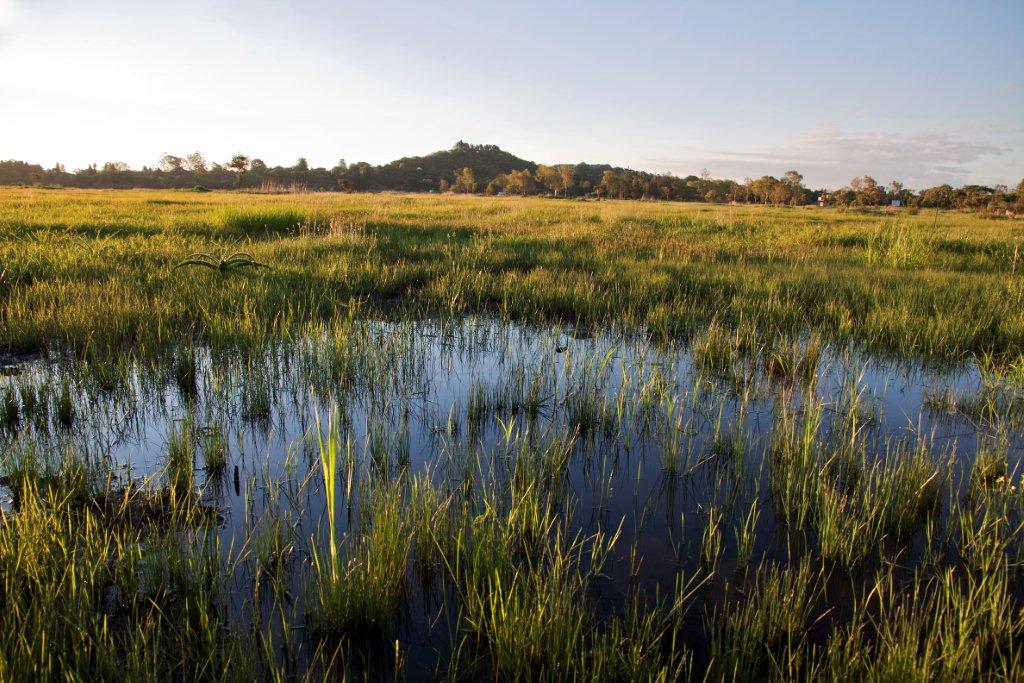
The last time l talked about wetlands was when l wrote about, The role of wetlands in the fight against greenhouse gases. Indeed, it would be unfair to leave this discourse incomplete and half-baked, as it is quite necessary to handle closely and equally related and important issues like, wetland reclamation and wetland management. In this article I am strictly focussing on wetland reclamation or restoration then l would focus on wetland management in future articles.
PETER MAKWANYA
One aspect of reducing conflict and making peace, is first and foremost, to make peace with oneself as an individual and then establish peace with the environment. This has been quite an elusive undertaking for human beings, as they always found themselves failing to live sustainably with the environment, as they would be having lots of tensions within themselves.
It is, therefore, critical in this regard for humans to make covenants with themselves and make personal efforts to cleanse themselves of unsustainable behaviours towards their immediate environment. Long ago, people, in a moment of madness and desperation or rather ignorance embarked on the destruction of wetlands for subsistence agricultural purposes. Of course, people always lacked both education and training for them to be able to communicate sustainably with their immediate surroundings. But it is still possible to bring back destroyed wetland areas from environmental ruin.

In Zimbabwe, evidence is abound that several former wetland areas have been destroyed to construct human settlements, but their names have been retained up to this present day. Names of places like Dekete in Gokwe North and Dopota in Gokwe South district derive their names from their former and previous wet environments. Other like-structured sites scattered around the low-lying areas of Zimbabwe such as Masvingo districts and the Zambezi valley have telling effects of destroyed wetland areas.
Attempts to bring former wetlands back to life are important for stabilising the earth’s climate, eradicating poverty and making sustainable agriculture promising. Local people, with the help of funding or on trial purposes can be streamlined to engage into restoring empty degraded former wetlands into life-sustaining ventures. Former wetland areas in Zimbabwe that have been made barren and infertile and still referred to as matoro sometimes show glimpses of their former selves but can no longer thrive for reasons based on climatic changes.
The people who, once upon a time were agents of wetland destructions can be converted to be part of the solution to reclaim wetlands. People need to seriously start considering how best they can become part and parcel of the wetland stewardship. Local communal farmers in former wetland areas in Zimbabwe can begin wetland reclamation on small-scale levels during the rainy season by channelling flooding water to water logging areas and guard against grazing of the reclaimed land. Wetland areas lost over hundreds of years can be reclaimed in this way and through many other sustainable methods from wetland management systems. Small water living creatures can be introduced into reclaimed wetlands to improve the ecosystems. Some other aquatic creatures will naturally grow in the reclaimed wetlands to boost population growth.
- Chamisa under fire over US$120K donation
- Mavhunga puts DeMbare into Chibuku quarterfinals
- Pension funds bet on Cabora Bassa oilfields
- Councils defy govt fire tender directive
Keep Reading
Communities can be called upon to gang up and participate in these noble exercises thereby standing better chances of attracting funding to embark on large scale wetland reclamation ventures. Wetland restoration is fundamental for national sustainable growth, scientific research and for policy implementation as well as acting as carbon sinks for fighting climate change. Some areas, even up to this date, can easily get saturated by the overwhelming amounts of rain leading to encroachments into the poorly built houses causing massive dampness. This is evidence that the areas would be former wetland sites with huge potential for reclamation.
During the process of reclamation, wetlands can also be dressed with wetland friendly plants, which adapt easily to wetland environments. Not only plants favour wetland environments even trees do too. Countries like Botswana that have managed to preserve their wetland areas like the Okavango delta are reaping enormous benefits from tourism and wetland recreation activities. Wetland restoration or reclamation is on the mitigation side of combating climate change. Mitigation is reducing environmental damage by avoiding and minimising activities that enhance climate change.
Wetlands are good and sustainable sources for water storage, moisture retention, carbon storage, serving as natural water treatment and recreation. In this regard, wetlands are necessary for water retention schemes, improving soil fertility, ecosystem life sustenance and resilience. Of late, there has been some SMSs sent by the Environmental Management Agency (EMA) urging people to protect wetlands. Noble as this may sound, it must not be left to EMA alone as other players or stakeholders need to complement EMA’s efforts in managing the environment. Other stakeholders may also chip in with education, training and awareness in this regard. But the overriding factor for sustainable wetland restoration is peace with one self and the environment for sustainable environmental management and governance.
●Peter Makwanya is a climate change communicator. He writes in his own capacity and can be contacted on: [email protected]











